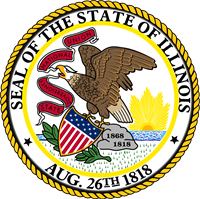- About
-
Advocacy
- Submit Legislative Proposals to the ILA Public Policy Committee
- Advocacy Policies and Procedures
- More Than a Building
- Census 2020 Resources
- Creating or Changing Illinois State Library Law
- Illinois Minimum Wage Resources
- Intro to Property Taxes for IL Libraries
- ILA Public Policy Principles
- Legislative Issues
- Libraries and Immigration Enforcement
- Making Your Case
- Ready, Set, Advocate
- TIFs and Public Library Districts in Illinois
- Top Ten Advocacy Tips
- Unite Against Book Bans in Illinois
-
Committees
- Frequently Asked Questions (FAQ) about ILA Committees
- Advocacy Committee
- Awards Committee
- Conference Program Committee, 2025
- Conference Program Committee, 2026
- Diversity Committee
- Finance Committee
- Fundraising Committee
- ILA Reporter Advisory Committee
- Illinois Libraries Present Committee
- Illinois Public Library Standards Committee
- Intellectual Freedom Committee
- iREAD Committee
- Nominating Committee
- Public Policy Committee
- Reaching Forward North Committee
- Reaching Forward South Committee
- Events
-
Forums
- Frequently Asked Questions (FAQ) about ILA Forums
- Human Resources & Administration Forum (HRAF)
- Illinois Association of College & Research Libraries Forum (IACRL)
- Library Trustee Forum (LTF)
- Marketing Forum (MF)
- Resources & Technical Services Forum (RTSF)
- Retired Members Forum
- Small and Rural Libraries Forum (SARL)
- Students and New Professionals Forum (SANP)
- Young Adult Services Forum (YASF)
- Youth Services Forum (YSF)
- Initiatives
- Membership
- Publications
2015 Session Update

The current legislative session has included attempts to freeze property tax levies at 2015 amounts, a measure that would severely cripple libraries and other local governments. ILA is monitoring activity that could attach this provision to other pending bills before the session adjourns.
History and Scope of Tax Caps
In 1991, the Illinois General Assembly passed the Property Tax Extension Limitation Act (Public Act 87-17) commonly known as "tax caps." It affected taxing districts in the "collar counties" (i.e., DuPage, Kane, Lake, McHenry, and Will). Tax caps were extended to Cook County in 1995, and the following year all Illinois county boards were given the option of placing a referendum on the ballot asking county voters whether tax caps should apply to taxing bodies in their county.
As of December 3, 2003, the following thirty-nine out of Illinois's 102 counties are under the provisions of this law: Boone, Champaign, Christian, Coles, Cook, Cumberland, DeKalb, DuPage, Franklin, Greene, Jackson, Jefferson, JoDaviess, Kane, Kankakee, Kendall, Lake, Lee, Livingston, Logan, Macoupin, Marion, Massac, McDonough, McHenry, Menard, Monroe, Morgan, Randolph, Sangamon, Schuyler, Shelby, Stephenson, Tazewell, Union, Washington, Will, Williamson, and Winnebago.
(PTELL Referendum was rejected in: Adams (April 1997); Bureau (March 1998); Carroll (Nov. 1997); Edgar (April 2001); LaSalle (Nov. 1997); Madison (April 1999); McLean (April 1997); Moultrie (April 2003); Shelby (April 1997, later passed in Nov. 2000); Whiteside (Nov. 1997); and Massac (Nov. 1996, later passed in Nov. 2000).
The tax caps restrict the ability to levy higher taxes by all local governments in a tax capped county except home rule units. Under the 1970 Illinois Constitution, home rule units are the County of Cook, all municipalities with a population over 25,000, and any other municipality if home rule is approved by a voter referendum. In addition, four communities voted to rescind their home rule status—Lisle, Lombard, Rockford, and Villa Park—and are under tax caps. Illinois has over 6,000 units of local government, the vast majority of which are non-home rule and therefore limited by the caps if they are located in a tax capped county.
While many public officials now realize that tax caps have adversely affected the ability of local governments to provide basic services, the law is still very popular. Former Governor Jim Edgar and many legislators believe that tax caps were their most important accomplishment. It is unlikely that tax caps will ever be repealed. In the last several years, however, there have been a few small modifications to the law which have permitted some local governments to levy higher taxes for selected purposes without referendum.

 iREAD Summer Reading Programs
iREAD Summer Reading Programs Latest Library JobLine Listings
Latest Library JobLine Listings